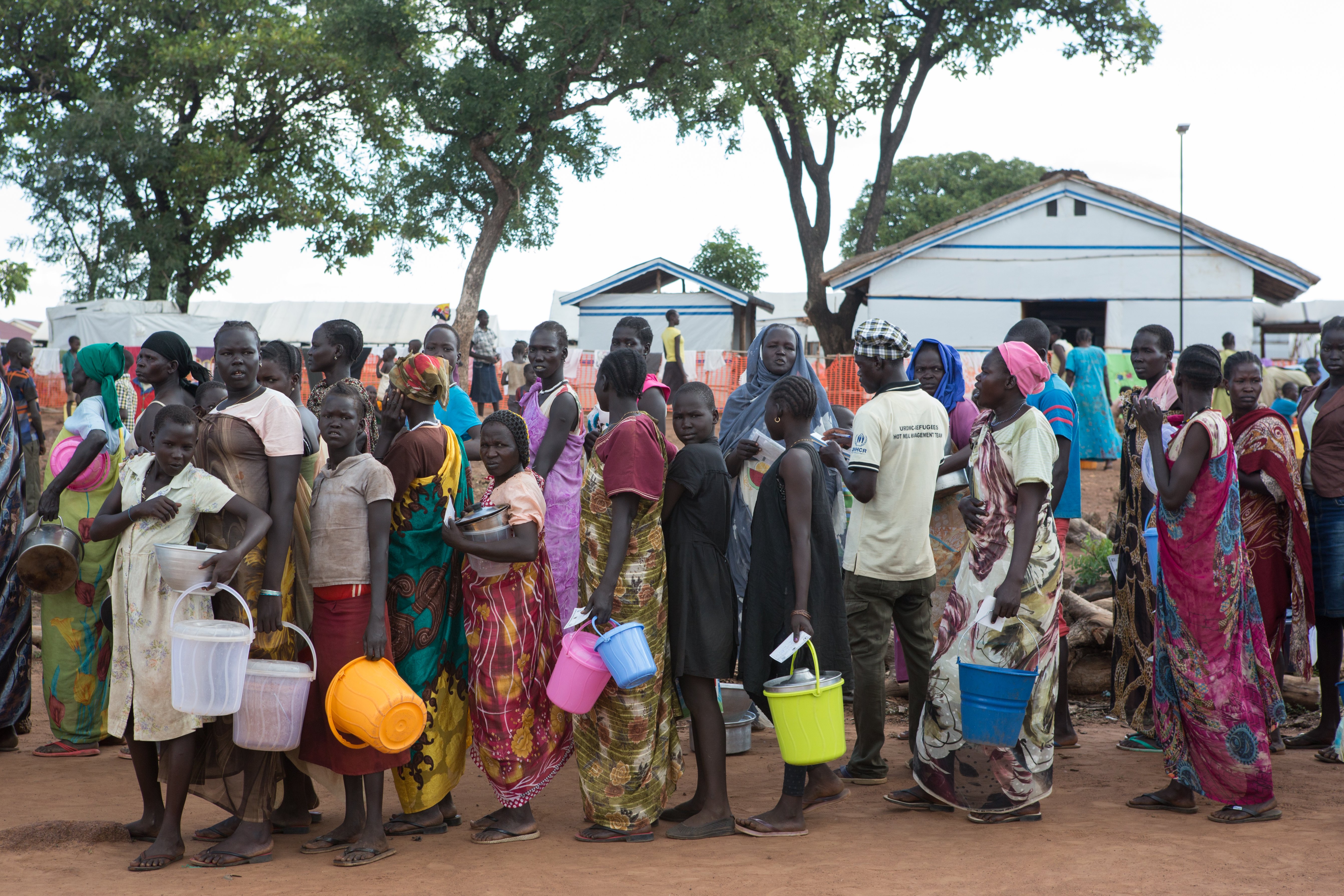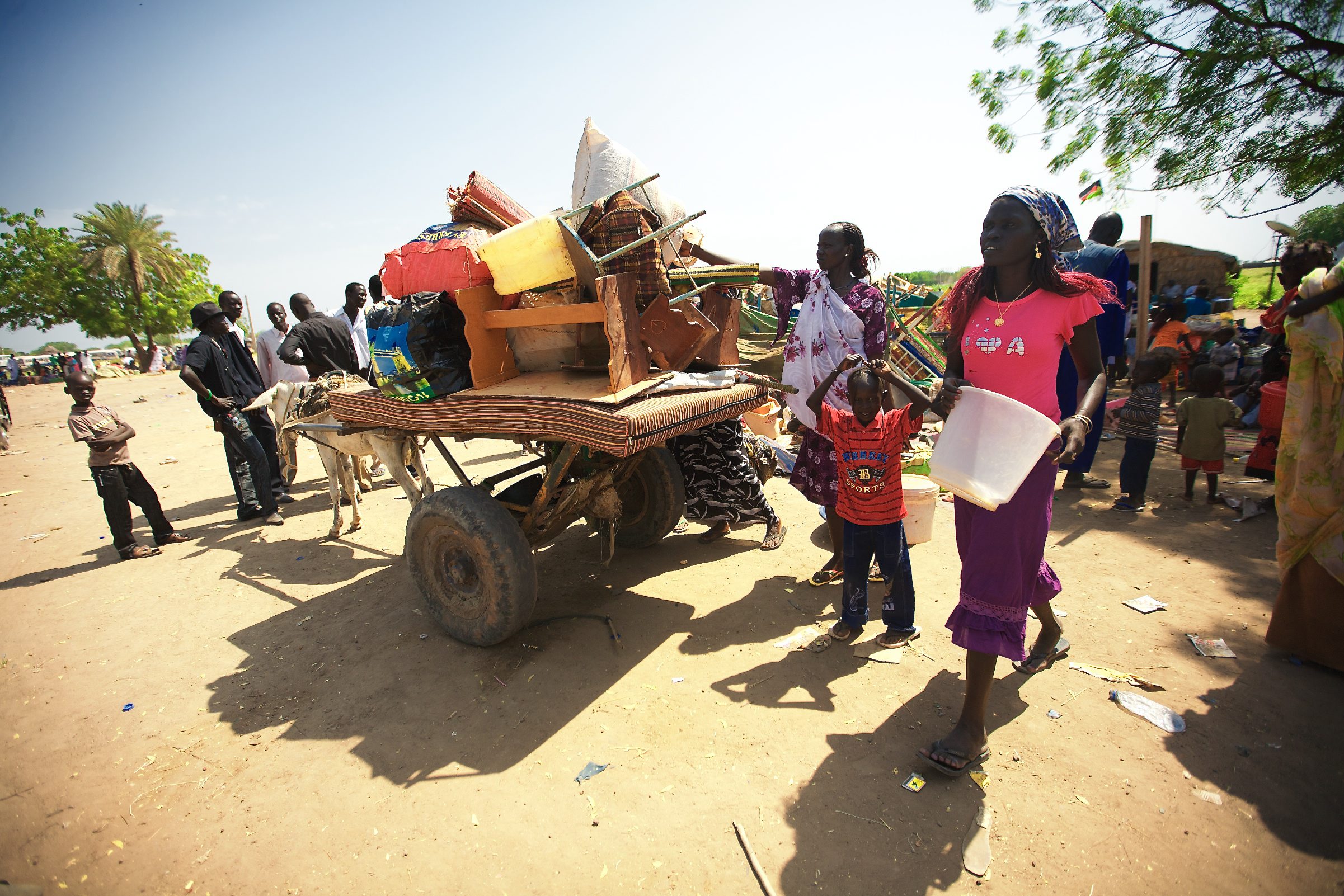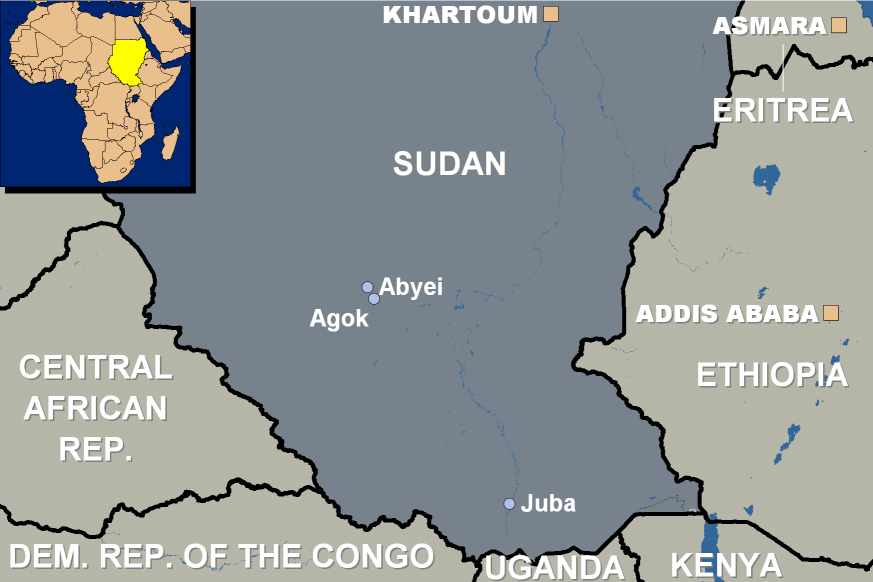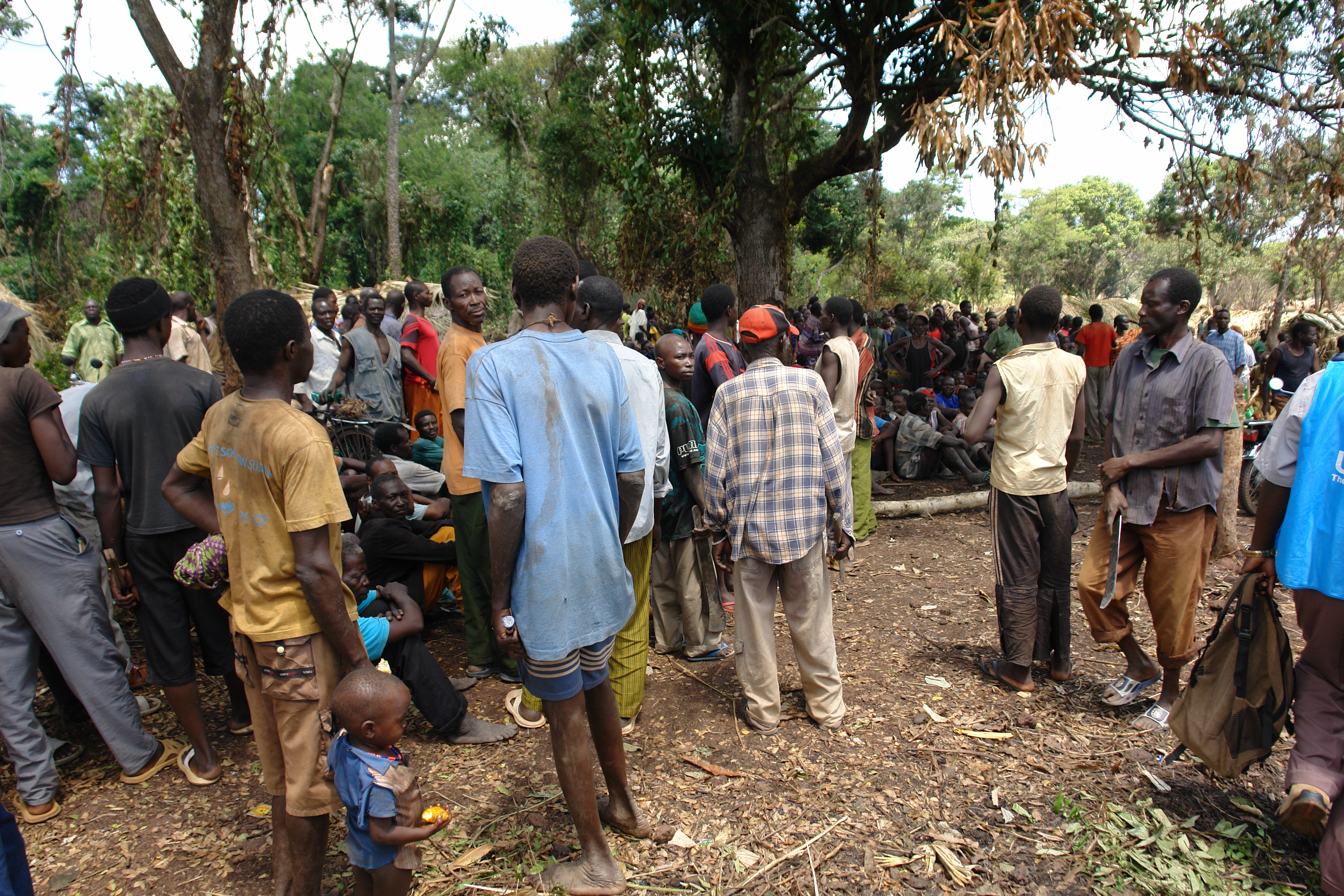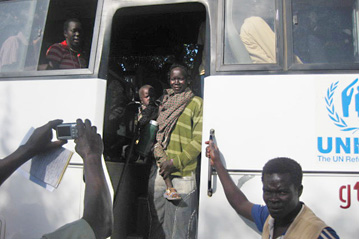Potential returnees make emotional reconnaissance trip to southern Sudan
Potential returnees make emotional reconnaissance trip to southern Sudan

TAMBURA, southern Sudan, November 7 (UNHCR) - The flight was short. But, for the four passengers on board, the 45-minute hop across the border bridged more than ten years of exile from their homes. As they stepped down from the white UNHCR plane into the Sudanese sunshine on Saturday, they were clearly apprehensive. But the enthusiastic crowd at the small Tambura airstrip in southern Sudan greeted them as long-lost family members and friends.
It was a highly emotional moment for the two female and two male passengers, who were travelling in their capacity as representatives of the Sudanese refugee community living in Mboki in the Central African Republic. They were returning to Tambura on a 'go-and-see visit,' organized by the UN refugee agency in order to give the refugees themselves the opportunity to assess the situation in their home country and villages, rather than have to rely on what others tell them.
They will return to Mboki on Wednesday, November 9, to tell the other refugees in the camps about their impressions. This should help the refugees to make an informed decision on whether or not to opt to return.
Their four-day stay in Tambura is the first such go-and-see visit organized by UNHCR to southern Sudan. Thus, in some ways, it heralds the start of the organized repatriation of refugees to Sudan.
The four refugee representatives are meeting with the local authorities, with the people in their home communities, as well as with the international organizations and NGOs that are organizing and supporting the repatriation and reintegration of the refugees. In addition to Tambura itself, they are making two day-long trips to the outlying areas of Source Yubu and Mupoi.
Once they had found their feet, the four started firing off a lot of questions: What is the health situation like? Are there doctors and trained personnel in the hospitals? What about medicines and first aid? Will the returnees get assistance - such as seeds and tools - to plant their first crops? What happens if returnees find someone occupying their land? Are there enough waterholes for everyone, including the returnees? What about schools - how many are there, what condition are they in, how many teachers? When will the roads be repaired, and who is assigned to do that work? And above all, how will the repatriation function - will the returnees be assisted with transport all the way back to their villages, or will they have to do the last part of the journey on their own?
Although they are not receiving precise answers to every single one of their questions, the refugee representatives feel they are now getting a much clearer picture of the situation than they had before. "This visit has really helped us to plan for our return, and we thank UNHCR for organizing it," said the leader of the delegation, Augostino Atillio. "For example, we found the situation in Tambura hospital very unsatisfactory - but we have decided to return anyhow!"
The local population received the refugee representatives with open arms. The hugely emotional reception began at the airport, and is continuing more or less everywhere they go: "When we went to the market, people wanted to grab us all the time - we were not even able to move," said one of the visitors. Wherever they went in Tambura, people whom they had not seen for many long years came running up to give a hug to one or other of them.
The local officials joined in as well: "We are welcoming back our brothers and sisters. Now, with the war over, we all want to stay together," the Mayor of Tambura said in his welcoming speech.
After an intense and tumultuous four days, the refugee delegation is scheduled to fly back to the Mboki camps on Wednesday. They will be accompanied by southern Sudanese officials from Tambura, who will join them for a big town-hall-style meeting with the refugees. But the outcome of that meeting seems already to be a foregone conclusion: virtually all the refugees in Mboki have expressed a strong wish to return to their homes, despite the precarious situation in southern Sudan where, after 21 years of war, even the most basic infrastructure is lacking, and society has to be built up from practically zero.
UNHCR plans to start repatriating the 12,400 refugees from Mboki sometime in mid-to-late November. The repatriation will initially take place by air, as the road between Mboki and Tambura is in such bad condition it is impassable for heavily laden repatriation convoys. But, work will soon start on repairing the road, and once that is complete the repatriation should pick up momentum.
In all, more than 400,000 Sudanese refugees are living in neighbouring countries. Most of them are already planning for their return, and UNHCR is finalising its preparations for large-scale repatriations to Sudan during the course 2006.
By Mans Nyberg in Tambura, Southern Sudan

